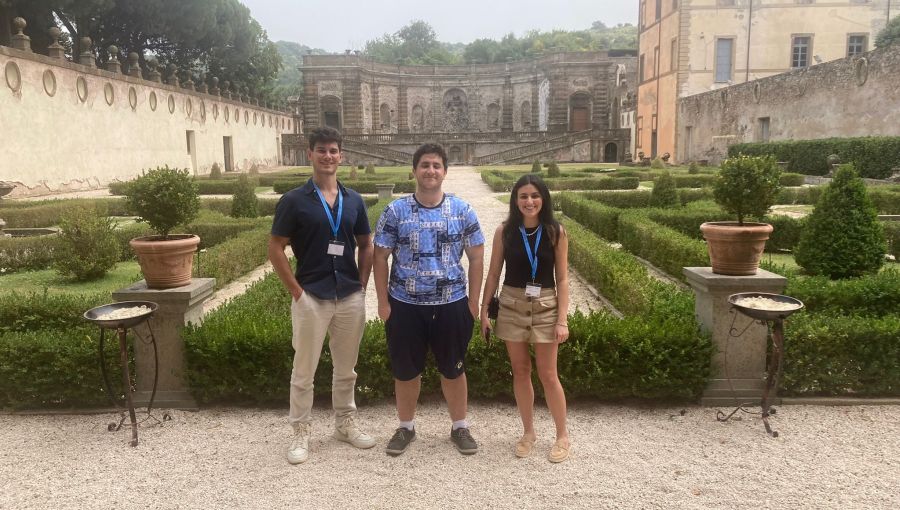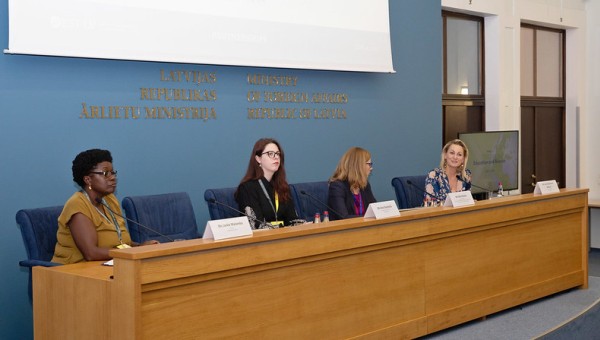Marketing Students Visit LUISS ENLABS Startup Accelerator
On Monday, June 12, Professor Antonella Salvatore arranged a special lecture at LUISS ENLABS Startup Accelerator for the students in her “Principles of Marketing” course. Professor T.J. Gabriel’s visiting students from the University of North Georgia also took advantage of the opportunity to learn more about this dynamic hub hosting the most promising startups in the Roman business arena.
LUISS ENLABS Project Manager Radiosa Romani and Business Analyst Marco Giannone welcomed the JCU students and gave them a tour of the structure, based in a dedicated area of the Termini Station main building. A “Startup Factory” founded in 2012, LUISS ENLABS aims at enhancing students’ traditional placement possibilities through entrepreneurial spirit and knowledge.
During the tour of the building, JCU students were brought through three different levels corresponding to the startups’ seniority and success in the Acceleration Program. JCU students had the chance to meet and hear pitches from several young entrepreneurs who presented their business ideas and projects. Among these, special thanks go to Karaoke One and Codemotion, partners of the Center for Career Services at John Cabot University, and Maria La Via, CEO and Founder of ShopAround, who facilitated the external lecture and presented her startup at JCU in March 2017.
Mr. Giannone concluded by explaining the steps in the 5-month Sprint Acceleration Plan, which allows the selected business ideas to perform and eventually blossom. The application call to enter LUISS ENLABS is twice per year and only 6 projects out of 300 on average are selected. The newly accepted startups get supervision every two weeks, the “box period,” during which they have the chance to develop specific business objectives. At the end of each box, they face the so-called “sprint,” which is the preparation for a Demo Day, namely a 45-minute-presentation of their results from the “box period” to a committee of business analysts, senior advisors, and other startups to get feedback. After two months in the program, there is the first “milestone,” that is, the first presentation of the project with a testing phase that is open to the public. At this point, selling starts for early adopters, and entrepreneurs start preparing for the “Investors Day.”






